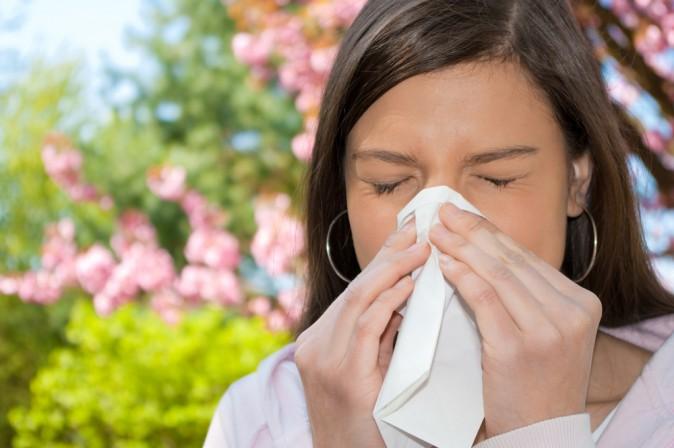The sneezing, coughing and red, itchy eyes characteristic of seasonal allergies impair the day-to-day activities and quality of life of many people in the U.S., about 7.5% of adults and 9% of children.1 Pollens from grass, trees, and weeds are the primary culprits; the immune system inappropriately recognizes these airborne substances as harmful invaders and produces antibodies. Each time one comes into contact with the same pollen, an immune attack ensues, leading to inflammation and cold-like symptoms.
The prevalence of allergic conditions is increasing, and there are several theories for why this is occurring. One theory is the hygiene hypothesis, the idea that having less exposure to pathogens and bacteria early in life increases our susceptibility to allergic conditions. According to this theory, early viral and bacterial exposure activates an immune response that aids the developing immune system, making later-life allergies less likely. Supporting this hypothesis, having pets, a greater number of siblings and a greater number of early viral infections are associated with decreased risk of allergies.2-4 Other theories focus on effects of our modern Western diet. A study of 56 different countries found that populations with higher rates of tobacco use, trans fat intake, and acetaminophen use had higher rates of allergies and asthma; however, populations with higher intake of plant-based foods had lower rates of allergies and asthma.5
Whether someone develops seasonal allergies or other allergic conditions depends on a combination of genetic and environmental factors. A family history of allergies is the strongest risk factor.2 Exposure to cigarette smoke during early childhood is another important risk factor.6 Some studies have reported that childhood acetaminophen use is linked to greater risk of allergies.7 In contrast, breast feeding and a healthful early childhood diet are protective factors.8 Intake of fruit, vegetables, and nuts in children has been associated with reduced asthma and allergy symptoms.9 Getting adequate vitamin D during pregnancy may also be protective against the development of allergies in children.10
Omega-3 fatty acids are one widely studied dietary factor associated with the development of allergies. The relatively low intake of omega-3 fatty acids in developed countries is also a potential reason for increasing allergy prevalence. Several studies have suggested that omega-3 supplementation during pregnancy likely reduces the risk of allergic conditions in the child.11,12
If you already have seasonal allergies, can a healthful diet reduce symptoms?
The factors that affect development of allergies in children may also be relevant to allergy symptoms in adults. Higher omega-3 intake and blood omega-3 levels have been associated with reduced risk of seasonal allergies in adults.13,14 Also, vitamin D deficient adults are more likely to report having allergies than those with sufficient vitamin D levels.15
There has not been much data published on the effects of diet on symptoms of seasonal allergies yet, however I have observed in my medical practice that the change to a high-nutrient diet is accompanied by a wide variety of benefits, including an improvement in allergy symptoms. I have seen many allergic patients slowly reduce the severity of their allergies and over time many became entirely non-allergic.
When you follow a high-nutrient diet, you are creating an environment in your body that promotes proper immune function and regulation of the inflammatory response, which may help to blunt allergy symptoms.
This article was originally published on www.drfuhrman.com. Read the original here.
Image of young woman with allergy via Shutterstock






